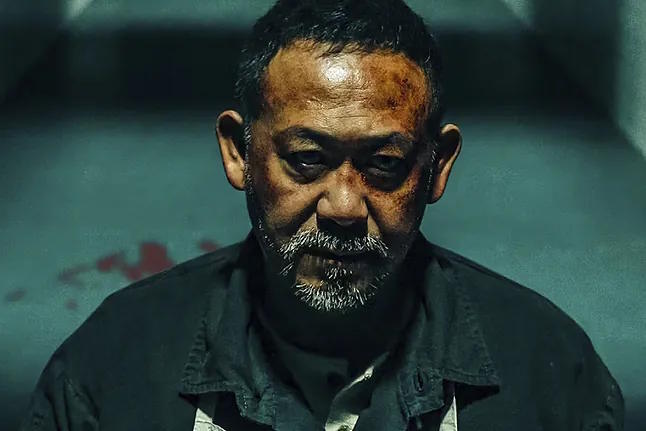Chinese cinema has always had a certain fetishism towards war films that evoke feelings of patriotism. Reviving on the big screen a heroic story and victory against a foreign invading power is like collective therapy: a way to transform old wounds from the so-called "century of humiliation" into a wave of national pride. Additionally, many of these films are box office hits, especially if the defeated enemies are the Japanese and the film exposes the atrocities committed during the Japanese occupation.
In September, to commemorate the 80th anniversary of the end of World War II, several films were released in China that depict some of the darker episodes of the 14 years of resistance against the Japanese invaders. The most anticipated of all was "Evil Unbound," which premiered on September 19 and addresses the biological warfare crimes committed by the Japanese Imperial Army in Harbin, in the northeast of the Asian country. There was the Unit 731, a brigade that injected lethal pathogens into its prisoners, mostly Chinese peasants, seeking to develop new strains as a biological weapon to win the war.
The film is set in early 1945, and the protagonist is a merchant named Wang Yongzhang, who, along with other civilians, is captured by the occupying forces and locked in a laboratory where he becomes a human guinea pig for the Japanese scientists. These scientists conduct all kinds of experiments on him, from vivisections to testing poisonous gases.
As the war against the Allies nears its end and Japan's defeat is imminent, Wang leads an escape plan, convincing other prisoners to try to escape with him because if they die inside, the world will never know the brutal crimes that the Japanese are committing.
"Evil Unbound" is already among the top five box office hits of the year in the Chinese market and was recently released in other countries such as Australia, the United States, and Canada. The film's background exposes a reality that is often remembered in China: they have been the great forgotten ones of the great war, relegated to a very secondary front of collective memory due to Eurocentrism and the Cold War.
Seizing the anniversary, the propaganda channels of the ruling Chinese Communist Party (CCP) have been demanding for weeks that the leading role played by the Asian giant during the conflict be finally recognized, reminding that the suffering of the Chinese people has been forgotten while the whole world knows about the Holocaust or the atomic bombings of Hiroshima and Nagasaki.
But what bothers Beijing's leaders the most is that Japan, in addition to honoring its war criminals and not publicly apologizing, has distorted the massacres of the imperial army on Chinese territory, promoting historical revisionism in schools and erasing episodes like the terrible experiments of Unit 731, led by a general named Shiro Ishii, a doctor who considered the Chinese biologically inferior.
In Harbin, there is a museum built on a former research base that operated as a concentration camp. It is estimated that around 12,000 people died there. In August 1945, just before the Soviet army advanced on the then region of Manchuria, the Japanese tried to destroy all facilities to erase any evidence.
The local authorities, who renamed this place as the "Chinese Auschwitz," reconstructed some of the rooms where many prisoners were injected with typhoid fever, cholera, anthrax, or the plague. To breed new strains, they used the blood of those who became the sickest for transfusions to other captives, seeking to develop deadlier strains.
Chinese records indicate that men infected with syphilis were forced at gunpoint to rape other men and women to spread the disease. Fertile female inmates were constantly raped until they became pregnant. They were then exposed to chemical weapons, traumatic injuries, or shrapnel wounds to study the effects on fetuses.
In the Harbin museum, they have also simulated other rooms where the gas chamber and a crushing room operated with a pressure mechanism that made prisoners' eyes pop out. To study acceleration forces in aerial combat and the resistance of paratroopers, there was also a huge centrifuge where dozens of people were put in at once and spun until they lost consciousness.
No survivor who had been through these concentration camps was ever found. But the film draws on documentary evidence that attests to the atrocities committed, as well as testimonies from relatives of the victims, scientists, and Japanese soldiers stationed in Harbin.
The Government of Japan, albeit reluctantly, eventually acknowledged in 1998, by order of its Supreme Court, the existence of experiments conducted by scientists of its imperial forces. However, Chinese media insist that after the war, the United States granted immunity to the officers of Unit 731 in exchange for access to all their research.
